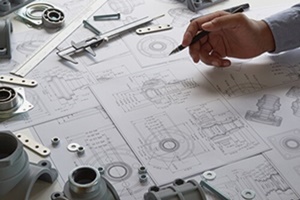REDUCING PIPELINE CORROSION IN OIL AND GAS INDUSTRIES USING ANT COLONY OPTIMIZATION TECHNIQUES
Publication Details
Abstract
This paper aims to develop a model for reducing oil pipeline corrosion in the oil and gas industries using ant colony optimization techniques. The primary objective is to investigate the efficacy of ant colony optimization in mitigating pipeline corrosion risks and oil spill probabilities. Specific goals include the development of a mathematical model, the design of a MATLAB Simulink model, and the assessment of API X46, X60, and X80 oil pipelines with multiple corrosion defects. The study examines longitudinally and circumferentially aligned defects, as well as their mutual interaction. Ant-colony models are employed to predict failure pressures associated with corrosion defects and dents. The paper introduces a failure pressure-based criterion to assess the interaction between dents and adjacent corrosion features, considering the Mechano-Electrochemical effect. The proposed criterion evaluates the mutual interaction based on the ratio of anodic current density at the defect adjacency to that of the non-corrosion region on the oil pipeline body.


